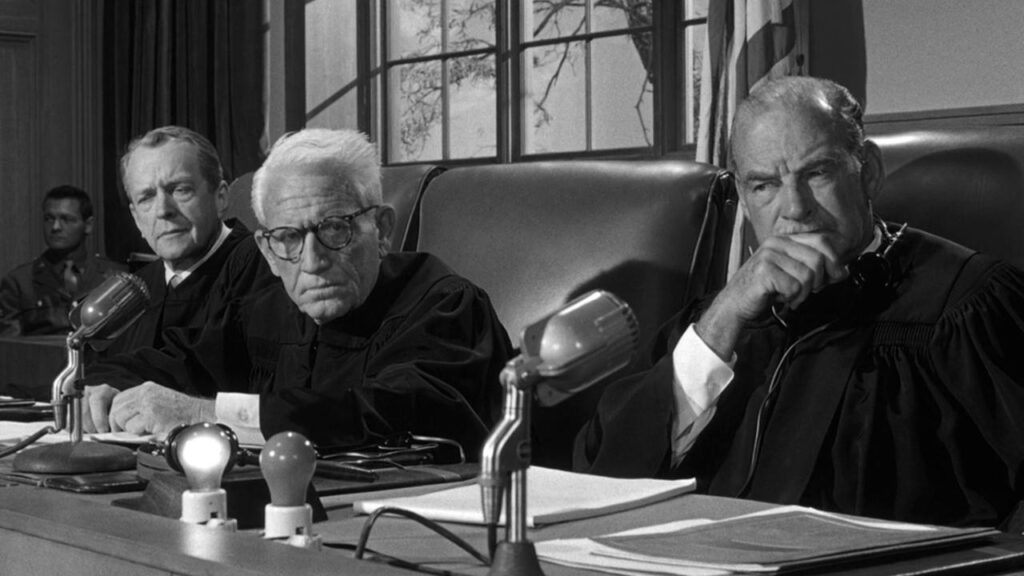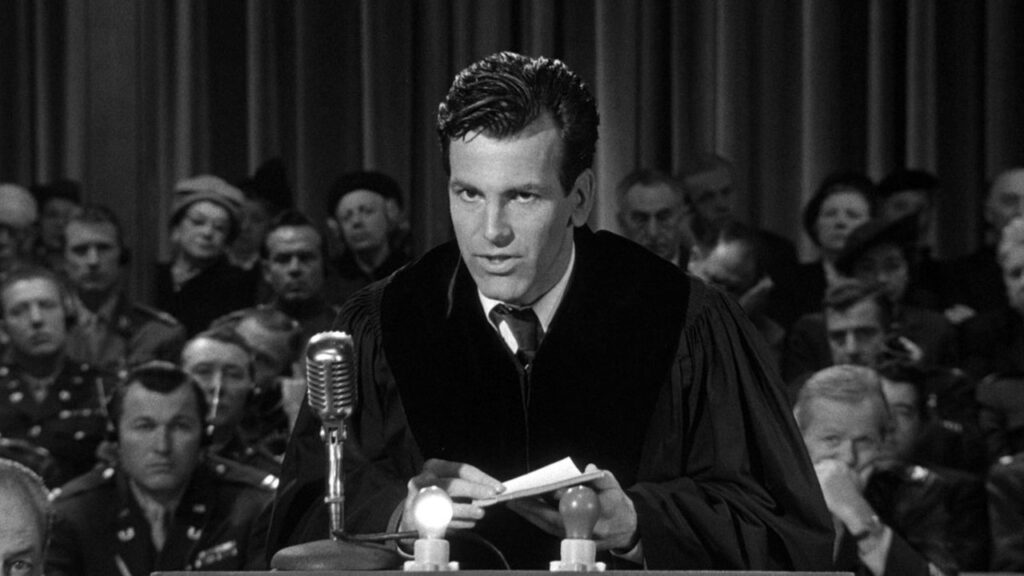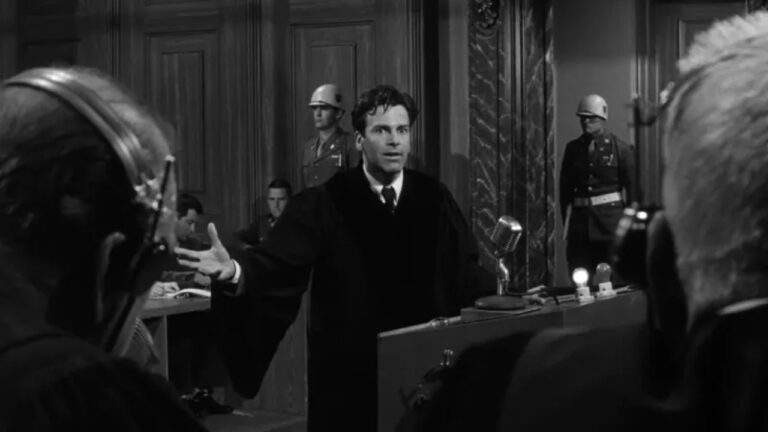Audiences and critics have a lot to say about the recent ‘Nuremberg‘ movie, starring Russell Crowe and Rami Malek. The reviews have been overwhelming, while fans have called it out by saying that the film is historically accurate and much better than the 1961 American Epic Drama called ‘Judgment at Nuremberg.’
And because of such strong reviews, the younger audiences are forgetting the essence that Stanley Kramer showed us in his Nuremberg movie. It had one of the most remarkable casts, and let’s be honest, unlike the new adaptation, the old one wasn’t afraid to ask the kind of questions that make you sit uncomfortably in your seat.
Powerful Courtroom Scenes Examine Responsibility When Law Becomes Instrument Of Evil

The 1961 movie is directed by Stanley Kramer and written by Abby Mann, and it tells the story of one of the most important events that happened in post-World War II Germany. We get to know where a military tribunal is attempting to untangle one of the darkest knots in human history, about the role of German judges who upheld and enforced the laws of the forced regime.
As for the cast, we see Spencer Tracy playing Chief Trial Judge Dan Haywood, who arrives in Nuremberg unsure of what he will find but fully aware that the world is watching. His courtroom holds four defendants, which is far fewer than the real trials, but enough to show the scope of moral collapse that the judicial system went through under the regime of the greatest dictator in the history of mankind. One of them is Ernst Janning, played by Burt Lancaster, who is a respected legal scholar who once represented German intellect and integrity. As viewers, we try to understand why Haywood kept circling back to the same questions again and again, and how a man like this ended up sentencing innocent people to death.
As Haywood moves between the courtroom and the city, he tries to understand the mentality of ordinary Germans during the war. His conversations with Frau Bertholt, the widow of a German general, show the emotional tug-of-war between guilt, denial, and survival. He also meets citizens who insist they knew nothing, people who claim they were powerless, and others who simply prefer not to revisit the past at all.
The entire movie narrative shows us the Inside of the courtroom. The defense attorney, Hans Rolfe, played with sharp precision by Maximilian Schell, gets to build his case around a disturbing idea. The German forces weren’t the only ones who valued harmful policies, as he highlights the eugenics in the United States, and they dealt their powers with the Vatican, and the Soviet Union’s role in enabling the war. His point isn’t to excuse the defendants but to argue that moral responsibility is never as simple as the prosecution wants it to be.
All of this pushes Janning, who refuses to take part at first, until he finally breaks his silence in one of the film’s most important moments. His confession makes it clear that while he didn’t support genocide, he did support a system that made it possible, and that alone carries a huge guilt. The film never lets the audience forget that atrocities don’t begin with mass murder. They begin with one person, in one courtroom, who is deciding to ignore the truth.
You may also like: Fans Praise ‘Nuremberg’ For Its Historical Accuracy, While Critics Push Back, ‘Nuremberg’ Premiere at TIFF Sparks Oscar Talk as Russell Crowe Delivers Career-Best Performance with Rami Malek
When Accountability Breaks Through the Noise

When the verdict finally lands, Haywood chooses justice over political convenience. Because of the ongoing Cold War during that era, it pressured everyone to move on quickly. And in the film’s closing moments, when Janning tries to claim he “didn’t know” where things would lead, Haywood delivers the line that defines the whole movie as he asks where it all began and when he first sentenced an innocent man.
And that is why the film still matters, even in this era when visual storytelling holds the power to distinctively tell us about the fragments of history that people aren’t much aware of. The movie matters because it refuses to let anyone off the hook, including us.
The trial of Nuremberg shaped our contemporary world in many ways. And even though people have their opinions about the old vs. the new, it is equally important to understand that the 2025 movie was heavily inspired by Kramer’s work and the 2013 book by Jack El-Hai.
Read more: How ‘In This Corner of the World’ Turns Ordinary Life Into A Testament Of Survival, ‘Grave of the Fireflies’ Remains One Of Cinema’s Most Devastating Portraits Of Innocence




